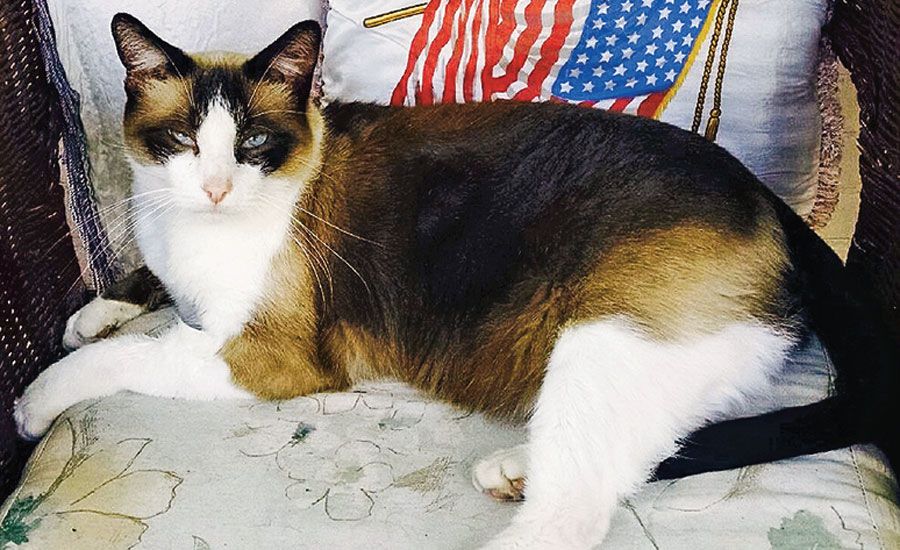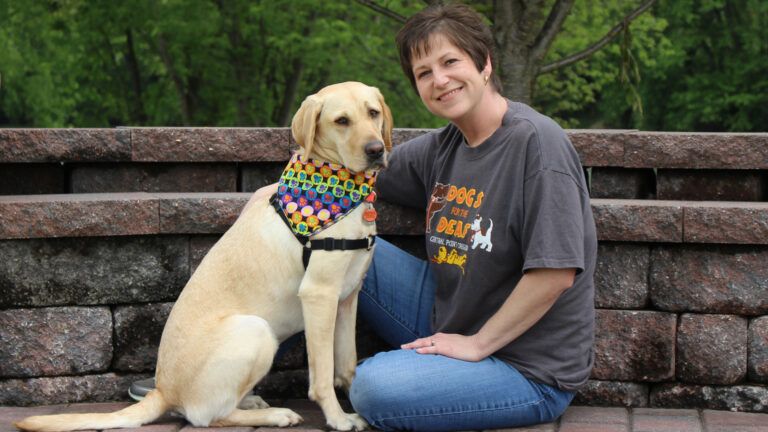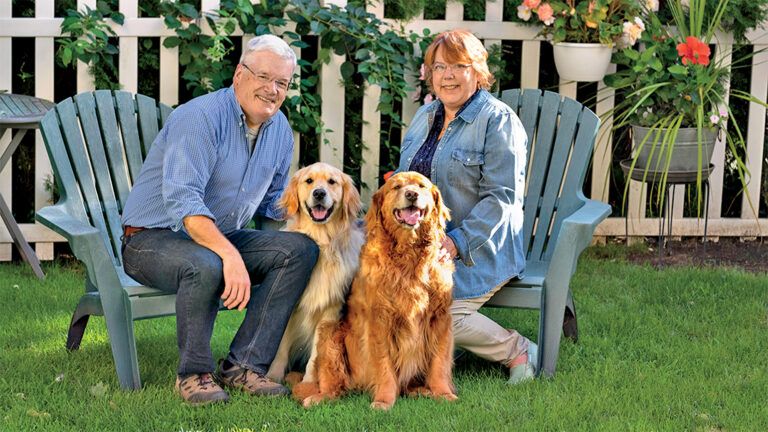Mental health counselor Dr. Kate Parker-Enger’s brown-and-white Siamese, Cotton, is like so many other cats: independent, mostly indifferent to humans. But he’s no ordinary feline. When he demands attention, it’s to help save someone’s life.
Egner already had four cats when she adopted Cotton ten years ago. But it wasn’t until 2012 that she realized there was something unusual about her newest addition. That’s when Enger started seeing clients in the front room of her home. While the other cats stayed out of the room during her sessions, Cotton would occasionally stroll in and sidle up next to a client.
“I didn’t really think about what types of clients Cotton approached,” Egner says. “Cats are mysterious, I figured. Perhaps he smelled the tuna fish someone had eaten for lunch.”
The first client Cotton warmed up to was in particularly bad shape. She’d witnessed her husband commit suicide. She needed a lot of counseling. Every single session, Cotton came in and sat on her lap.
Over time Enger made progress. Her client admitted she was thinking about taking her own life when she first came in for treatment. “’But I don’t want to die anymore. I want to live,’ she told me,” Egner says. “After that breakthrough, Cotton stopped dropping in during sessions.”
Instead, the cat took to another patient, a high school girl. Her classmates were cyber-bullying her. She’d since been delinquent at school and become a terror to her parents. No one could get through to her. Even Enger was at a loss. Then in the middle of one session, Cotton walked in and stood by the girl’s chair, staring into her eyes.
“What’s with that cat?” the girl asked.
Enger had an idea. “Oh, don’t mind him, that’s just Cotton,” she said. “He seems to take to people who are really suffering. I have to ask you, are you thinking about hurting yourself?”
The girl broke down crying. She admitted that she was.
That confession was a turning point. The therapeutic work had only just begun, but she was out of crisis. Cotton soon lost interest in her.
It’s well-established that animals can detect disease. They can predict the onset of a seizure or alert a diabetic to a change in blood sugar; they often know how to comfort those in need. Could Cotton possibly know when someone was thinking about taking their own life? Egner wondered. She began to watch certain patients more closely—the ones Cotton watched. They always seemed to be in the deepest despair.
On one of Enger’s days off, she took a break from working in her garden and went inside for a glass of iced tea. Moments later, someone pounded on the front door.
“Are you the lady who helps people?” a nervous young man asked.
“Sure, come in,” she said. She looked around for Cotton. Nowhere in sight.
The man began by telling her about a difficult relationship he was in. He was barely keeping his composure. Then he lost it.
“I feel like such an idiot coming here. When you didn’t answer the first time I knocked, I turned around and went to my car. I was going to go home and shoot myself.”
She spoke with the young man for the next hour. By the end of their session, he admitted that he really had too much to live for to take his own life. But Enger was still curious. “What made you turn around and try my door again?”
“This brown-and-white cat came up and started looking at me,” he explained. “He just stared right into my eyes. I started crying. I knew I needed to talk to someone.”
Cotton knew too. Somehow.





